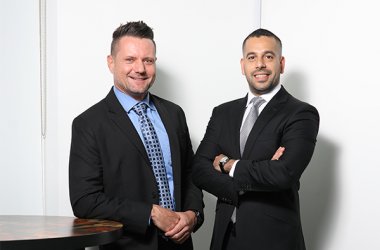
The warning comes as fears about the UAE’s channel stability continue to mount with industry pundits expecting “weaker” smaller IT dealers to go under. Most smaller resellers operating out of Dubai’s Computer Street have been struggling to keep their businesses afloat amid increased margin pressure, commoditisation of IT products and stiff competition.
Hesham Tantawi, VP at Asbis Middle East, Turkey and Africa (META) region, says resellers that haven’t grown their businesses in the last 12 months are finding it increasingly difficult to survive under the current market conditions.
Tantawi, who is also a DCG board member and the only distributor on the DCG board, adds that while most distributors in the region are stable, tier 1 and 2 resellers in the UAE market are struggling to stay buoyant. “Channel runaways have seasons and when the market is slow and flat, runaways increase,” he notes. “We expect this to continue throughout Q1 in 2011.”
He expects more resellers will go bankrupt this quarter because sales have been sluggish and the problem has been compounded by the fact that most vendors have over supplied the local channel. Tantawi adds that vendors have continued to over stuff the channel living resellers with no or little room to manoeuvre. “The issue of vendors over stuffing the local channel at the end of the year has not helped matters either especially in 2010 when the market was flat,” he observes.
He explains that from an Asbis perspective, the company is against the policy of product over stuffing. “We have a team within the group that works closely with resellers in trying to understand their business pipe line and this has helped Asbis to ensure that partners are not over supplied with products,” he says.
Tantawi explains that Asbis has taken this further and has started to track resellers’ buying patterns all in an effort to avert product over stuffing. “I do believe that vendors need to increase their end-user demand generation and marketing awareness activities to help resellers develop and grow the UAE market,” he says. “Over supplying products in a market that is already flat and still has remnants from the global downturn is exacerbating the whole situation.”
He adds that instead of vendors focusing on over supplying products in order to meet their quarterly targets, they need to look at ways in which they can help those resellers that still have solid businesses.
Tantawi has also bemoaned the lack of interest by UAE based resellers to fully develop and grow the end-user market in the country as most are looking at the easy export route as a solution to the current slow channel sales. “The export market is risky and most resellers don’t have a comprehensive understanding of the market dynamics and characteristics of the people they are dealing with,” he says.
Tantawi advises local resellers to take leaf from Saudi Arabia-based resellers who have developed and grown their in-country business in the Kingdom before turning to exports. “We rarely hear of any runaways in the KSA channel why,” he asks? He explains that because resellers in the KSA have invested heavily in developing the local market and as such their businesses are on a sound footing as money stays in the channel.
Tantawi says that while it is inevitable for some unethical resellers to exit the channel, there is need for vendors to exercise prudence in helping distributors to stabilise the market. “Stuffing products in the local channel will only make the situation worse,” he concludes.
The Dubai Computer Group (DCG) is cautioning the local channel to brace itself for an increase in resellers ?escapees? following the collapse of several Dubai-based IT dealers in the past three months.





